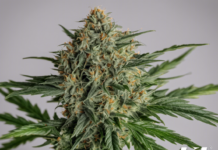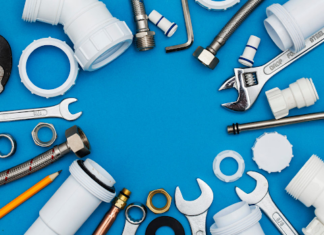What is more satisfying than seeing your garden grow healthier than ever? We always find a way to make our plants grow in the best way they can. One way to achieve this is by using fertilizers. Fertilizers are chemical substances applied to the plants to increase crop yield and productivity.
Whether you use it for whatever garden size, fertilizers can still offer multiple advantages for many gardeners. It’s a helper to every individual or family who wants to start some plants to grow. Thus, many fertilizers were developed to help different plants effectively grow in different conditions.
One of the fertilizers used today is potassium nitrate. This fertilizer is commonly used for high-value crops available in your garden. You may be wondering by now how potassium nitrate can help you further in your garden. Thus, we list down all the things you need to know about potassium nitrate. Furthermore, you will also learn the pros and cons of using it in your garden.
What is Potassium Nitrate?
The potassium nitrate is also known for its chemical formula KNO3. This fertilizer is known to be a source of two of the essential nutrients for plants to grow. Potassium nitrate is commonly found in China and Southeast Asia. But because of technology, it can also now be obtained from nitric acid. The nutrition it provides is nitrate (NO₃-), while plants can also benefit from potassium (-K) free from chloride.
Commonly, potassium nitrates are manufactured as water-soluble. This is to make the job easier for gardeners for soil application. Furthermore, the application of potassium nitrate is much needed for high-value plants to boost their growth and quality. You don’t need to worry about where to get it. Potassium nitrate for gardens is freely available and can surely help your garden grow.
As mentioned, potassium is one of the most needed core element nutrients for plants. How is it beneficial? Any plants need to have minerals that would help them for water absorption. Plants like tomatoes, pumpkins, cucumbers, and potatoes are just some examples of high potassium plants. Learn more about the pros and cons of using potassium nitrate in your garden.
Pros
Potassium nitrate is especially helpful to reduce inefficiency in plants. The imbalances of many factors can affect the plants negatively. With the help of potassium nitrate, plants can achieve improved plant firmness and color. Stronger and healthier plants equate to improved quality and higher yields for your garden plants.
Another essential thing potassium nitrate can offer you is its ability to help plants withstand different weather conditions. That’s a lot of help for people having a hard time growing their plants because of frequent weather changes like drought and excessive rain. Plants commonly experience stress during extreme weather. Thus the application of potassium nitrate can help them overcome these conditions.
What’s more? Imagine, you never have to deal with plant diseases and pests. Yes! Potassium nitrates are also helpful to avoid these problems that are commonly a headache for many gardeners. Furthermore, they can help plants from bacterial infections for up to 70% and 60% effectivity rate for pests like insects and mites.
Cons
Although potassium nitrate is undeniably beneficial to plants, there are still some drawbacks in its use. Too much of something will never be good. Too much potassium in the garden soil can affect your plants negatively. They can cause damage to the roots, and worse is it can burn them and kill the plant.
Furthermore, too much potassium enables the plants to no longer absorb other necessary essential nutrients like magnesium. How is magnesium helpful? Magnesium helps in the metabolic process of the plants, which includes photosynthesis. This means that too much potassium can lead to growth deficiency. Thus, everything should come into balance.
Tips
It is vital to take action when problems with excess potassium happen. The first thing to do is to avoid further addition of what is excessing. One way to help the plants achieve balance again is by giving them more magnesium. Furthermore, it is also important to be well-educated about what you use for your plants to avoid future mistakes.
Check the three macronutrient levels, which include: nitrogen (N), phosphorus (P), and potassium (K) on the commercial fertilizers. For soils with higher potassium, choose a fertilizer with a low or zero component of potassium.
Takeaway
The primary purpose of fertilizers is to help your plants grow brighter and healthier than ever. However, a lot of people may be unfamiliar with what plants may need to grow. Thus, we must educate ourselves about their components and what can help them further. This knowledge can also help us achieve our goals.
Just like us, plants do need proper nutrients and care. Just remember to give just enough of what they need. As a result, these plants would surely repay you with healthier and glowing yields you have never seen before.









